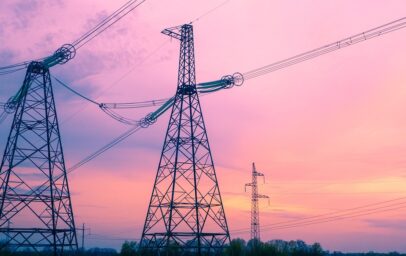The EU is facing mounting concerns over floods of small parcels entering the European market from Chinese e-commerce platforms, many of which fail to meet EU environmental and safety standards. Regulators and customs authorities are urging stronger legislation to address the surge of potentially hazardous goods.
Every day, millions of parcels from platforms like Temu, Shein, and countless smaller vendors arrive in the EU, often through major logistical hubs like the Port of Rotterdam in the Netherlands or airports in Belgium and Germany. Many of these parcels contain products ranging from clothing and electronics to lithium batteries, unauthorized medications, and flammable chargers—items that frequently fall short of the EU’s strict regulations. “We have no idea what’s entering the European market”, MEP Dirk Gotink (NL/EPP) says.
Enforcement can’t keep up
Customs authorities across Europe are struggling to keep pace with the sheer volume of parcels entering the Single Market. In the Netherlands alone, where the Port of Rotterdam serves as a major entry point for goods later redistributed across the EU, an estimated 1.7 million parcels arrive each day.
With thousands arriving every minute and a steady stream of new sellers and platforms emerging, large-scale monitoring has become virtually unmanageable. Even when violations are detected, enforcement proves difficult, as many of the platforms involved operate without any legal presence within the European Union.
Moreover, experts warn that when one Member State tightens its controls, the trade route often shifts to another, highlighting the need for a harmonized European response.
You might be interested
An unfair playing field
Beyond safety concerns, European businesses are also feeling the pressure of unfair competition. Under current EU rules, packages valued under €150 are exempt from import duties. According to the European Commission, around 65 percent of imported parcels are deliberately undervalued to exploit this exemption.
This creates a two-tiered system in which EU producers, who must comply with strict regulatory, tax, and environmental standards, are undercut by sellers who circumvent the rules. The result is market distortion that disadvantages compliant businesses and undermines consumer protection.
“This leads to massive tax evasion,” Gotink says. “And that doesn’t just hurt national budgets, it also affects the EU budget, because customs duties are an EU resource. On top of that, there’s no effective control to ensure these products comply with non-fiscal legislation. So it’s not just about taxes, it’s also about safety, standards, and it’s a huge competitive disadvantage for European businesses.”
EU efforts underway
The European Commission has acknowledged the problem and is taking steps to address it. Under the Digital Services Act (DSA), large online platforms are obliged to comply with EU law, including consumer safety and product traceability. However, enforcement remains a challenge, particularly for smaller sellers operating without EU-based legal entities.
As part of its broader customs reform, the EU is also pushing for the creation of a common data hub to link all 27 national customs authorities. “This is long overdue,” Gotink says. “We’ll finally be able to get a clearer picture of what’s coming in, using risk profiles, using shared data. Right now, customs authorities work in isolation. That has to change.”
According to Gotink, the reform will streamline procedures and also reduce the regulatory burden for compliant businesses. “It’s a major reform that touches on both fiscal and non-fiscal aspects. And it’s very pro-business; it simplifies cross-border trade for those who play by the rules.”
One of the reforms under discussion is removing the €150 duty exemption threshold, as well as introducing a €2 handling fee on all parcels to cover increased inspection costs. Packages sent to warehouses rather than directly to consumers would only be charged €0.50.
Geopolitical issue
Some voices warn that tighter EU measures, such as lifting the €150 threshold, could escalate tensions with China. But Gotink contends that trade-war dynamics are already playing out beneath the surface in the current situation. “These supposedly cheap parcels come at a high cost to our public budgets, from customs processing to waste management, especially with fast fashion and low-quality consumer goods.”
When asked how the EU’s planned measures might affect consumers, Gotink stresses that while there’s an effort to shield them, the real cost is already being paid elsewhere. “We’ve seen retailers go bankrupt. That’s not all because of e-commerce, but it’s certainly part of the picture. These companies face unfair competition from platforms that don’t play by the rules. And that carries social and economic costs.”
He warns of deeper risks, too. “If we let these parcels flow freely, we shouldn’t be surprised if in five to ten years, Chinese firms dominate entire sectors, based on prices that are artificially low because they don’t account for the real costs.”
“These Chinese companies increasingly embed themselves into our economy, even our distribution networks. They may have a low-level presence now, but that will change. And let’s not be naïve; Chinese companies are still subject to China’s laws. That’s a geopolitical issue, especially in strategic sectors and public services.”
The stakes, Gotink argues, go beyond consumer protection or fair trade. “We’ve spent 20 years talking about securing our external borders for people. But we’ve ignored the external borders for goods. Customs are key defense mechanism to enforce political decisions like sanctions or tariffs.”











